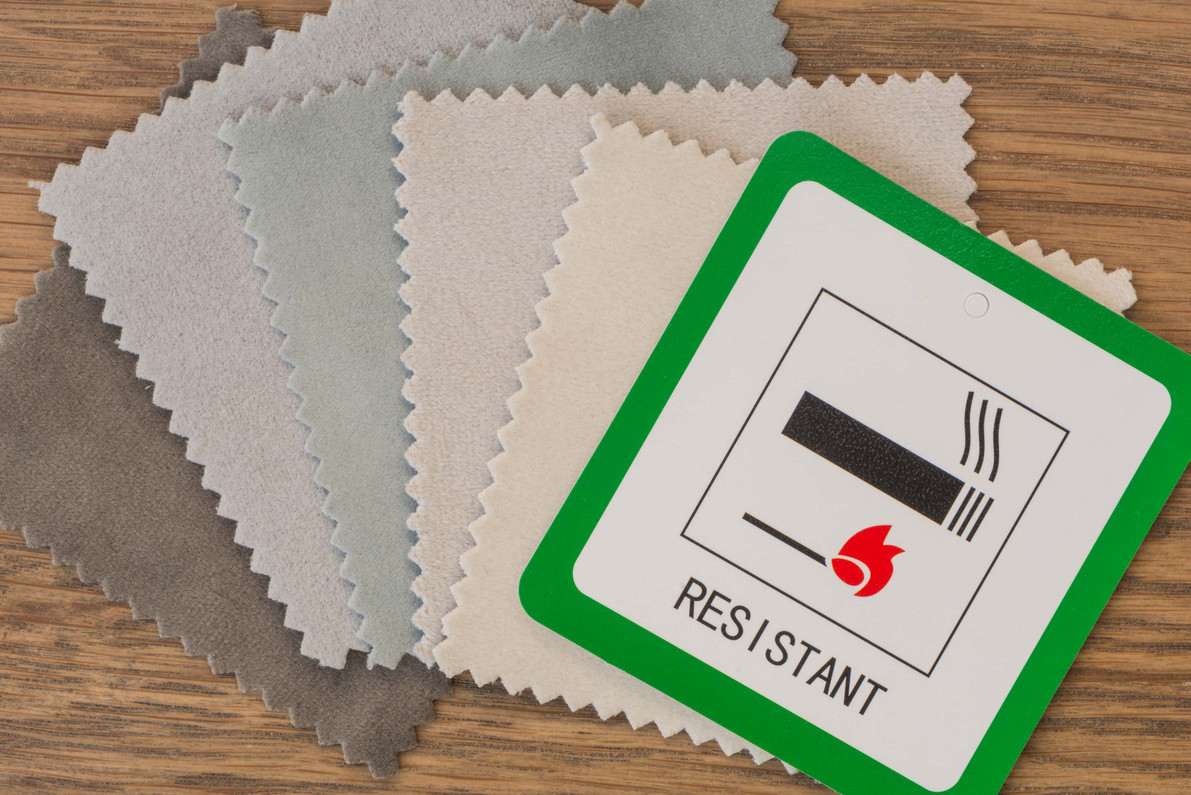What Fabrics Are Flame Retardant? | RDR Technologies
If you take a look at your surroundings right now, you will likely see multiple items made of fabric. Regardless of the environment, we are constantly exposed to fire accidents due to electrical malfunctions, overheated objects, or kitchen distractions.
The first items fire could reach if it suddenly starts may be anything made from synthetic and natural fabrics used on furniture – at home or in professional environments.
The best thing anyone can include in a protection plan against fire hazards is prevention through fire retardants. Fire or flame retardants can be found naturally in some materials and in chemical technologies created to gain time against fire spreading.
This blog contains a list of common flame retardant fabrics used in manufacturing, so the next time you buy something for your home or business, you’ll know which is the securest option and which ones need an extra layer of protection.

How Can You Tell If Fabric Is Fire Retardant?
Identifying whether fabric is fire retardant can be tricky, but there are several ways to check. The most reliable methods are:
- Labeling: Many flame retardant fabrics are clearly labeled as such. Look for tags that say "fire resistant" or "flame retardant."
- Burn Test: Conducting a small, controlled burn test is another way to determine if fabric is flame resistant. If the fabric chars slowly or self-extinguishes, it may be treated with flame retardant chemicals.
- Professional Testing: For accurate results, you can take fabric to a laboratory that specializes in fire safety testing.
What Are Flame Retardant Fabrics?
Imagine if a fabric could withstand fire and heat, not combust immediately, and instead act as an insulating layer to restrict the spread of flames. This is what flame-retardant fabrics do. They are engineered to resist fire, slow its propagation, and stop burning even if exposed to extreme temperatures and heat.
Flame retardants can be found in synthetic, natural, and blended fabrics, and we can classify them as inherently flame-retardant fabrics and treated flame-retardant fabrics.
Inherently Flame Retardant Fabrics
These fabrics have naturally occurring properties that make them resistant to fire. They are the safest choice when selecting fabrics for furniture and upholstery, as they provide a natural layer of protection.
The chemicals in these fabrics are what give them their flame-retardant properties. They can be chemically composed of boron, phosphorus, and nitrogen-based compounds. That is why it is common for them to be used in industrial and commercial environments due to their durability against high temperatures.
What Is the Most Fire-Resistant Fabric?
Some of the most fire-resistant fabrics include:
- Aramid fibers (e.g., Nomex®): Aramids are known for their outstanding flame resistance. Nomex® is commonly used in firefighter uniforms and racing suits due to its ability to resist heat and flames.
- PBI (Polybenzimidazole): PBI is another high-performance fiber used in protective clothing, offering excellent fire resistance while remaining lightweight and durable.
These fabrics are inherently flame resistant, meaning they do not require any additional chemical treatments to meet fire safety standards. However, they are usually only used in industrial or firefighting applications.
Treated Flame Retardant Fabrics
These fabrics are usually made of synthetic materials (like polyester and nylon), which might not resist fire without an extra layer of protection.
Treated fabrics can be flame-retardant because of the finishing process they undergo, like the application of chemical compounds or the use of special fabrics combined with other materials.

What Fabrics Are Inherently Flame Retardant?
Is cotton flame retardant? No, but it can be treated easily. Some inherently flame-retardant fabrics are:
- Wool
- Hemp
- Silk
When selecting any of these fabrics, read their specifications, as some products may include additional chemical treatments that can change their properties.
What Fabrics Need to Be Treated With Flame Retardant?
When it comes to fabrics that need to be treated with flame retardants, synthetics are the most common. So, is nylon fire resistant? Not really. The following is a list of fabrics that require flame retardant treatment:
- Polyester
- Nylon
- Acrylic
- Modacrylic
- Vinyl
- Rayon
- Cotton
Add Fire Protection to Your Fabrics With RDR
Regardless of what fabric you choose, you can always take extra measures to increase fire protection.
Our flame-retardant treatment solutions can provide an extra layer of security against fire. These treatments are designed to protect fabrics and upholstery against flames.
Fire and flame retardants can be used on synthetic and natural fabrics to ensure the highest levels of protection.
At RDR Technologies, we count on a wide range of fire and flame retardants specially formulated to meet the demands of the fire safety industry.
With RDR Technologies, you can select the safest fabrics for your home or business. Make sure to contact us for more information about our fire retardant treatments. We’re here to help you make the best decisions for your fire protection needs.
Recent Posts
-
Halloween Decor Safety: Protecting Costumes, Props & Haunted Houses with Fire Retardants
Halloween is one of the most creative holidays of the year. From glowing jack-o’-lanterns to elabora …Nov 5th 2025 -
Cost-Benefits of Investing in Fire Retardant Coatings
In today’s construction and safety-conscious environment, protecting buildings, assets, and people h …Nov 5th 2025 -
Fire Resistant vs Fire Retardant vs Intumescent: What's The Difference
When it comes to fire safety, the terms fire-resistant, fire-retardant, and intumescent are often us …Nov 5th 2025




